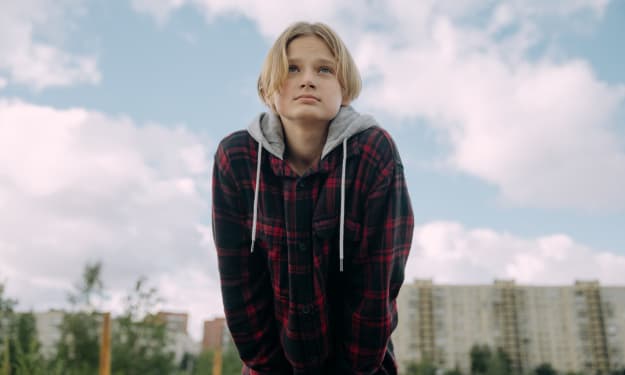
The Articulate Autistic
Bio
I'm a late-diagnosed autistic/ADHD woman who translates autistic communication, behavior, and intentions through comprehensive writing and one-to-one consultations.
Stories (33/0)
Provide Safety and Foster Independence by Answering Your Autistic Loved One’s Many Questions
“Why do we do it this way?” “Why is everyone mad?” “What does this mean?” “What did I do wrong?” As an autistic/ADHD person, I’m both a bottom-up thinker and an explicit learner, so the way I learn new information is by asking lots of questions and getting detailed explanations in response. The more details I receive, the better chance I have of forming a complete picture in my head of what’s expected of me–and being able to carry out that task.
By The Articulate Autistic3 months ago in Families
Attention Special Education Teachers: 4 Effective Methods to Help Autistic Children Learn and Master Skills
If you’re a special education teacher working with autistic students, you may experience frustration with standardized learning methods, even if those methods have been modified to be more accessible.
By The Articulate Autistic6 months ago in Education
“What Did I Do Wrong?” - A Book That Breaks the Traumatic Cycle of Communication Misunderstandings Between Autistic and Neurotypical People
As a late-diagnosed autistic/ADHD (AuDHD) person who grew up in the ‘80s and ‘90s, I must have asked, “What did I do wrong?” or some variation thereof at least a thousand times.
By The Articulate Autistic7 months ago in Families
Why Does My Autistic Loved One Ignore Me?
Imagine you're finally home after a tough day. You have a nice cup of tea in hand and have gone out to the porch to watch the sunset. There's a light breeze, the crickets are just beginning to chirp, and you can feel your tense muscles relax one by one as you sink into your favorite deck chair and enjoy the peace of nature.
By The Articulate Autistic9 months ago in Families
Special Education Teachers: Assume Positive Intent When Autistic Students Experience Social Miscommunication
If you’re a special education teacher working with autistic children, it’s important to be aware that autistic children don’t socialize “incorrectly”, they socialize differently according to their neurotype.
By The Articulate Autistic9 months ago in Education
Please Be Very Specific When Making a Request of An Autistic
"There's dog poop on the floor.” My aunt once said this to me as I was carrying some groceries through the enclosed porch and into the kitchen. My response was, “Oh, OK,” and I stepped around it each time as I took two or three more trips to get the rest of my shopping. I thought it was strange that she kept repeating the same thing as I went in and out of the door; “There's poop on the floor.” I thought, 'Yes, I know. I'm avoiding stepping in it, don't worry.'
By The Articulate Autistic9 months ago in Families
Are Your Questions Triggering Your Autistic Loved One's Fight-or-Flight Response?
For many autistic people, being asked a question can trigger anxiety. Even if they're pretty basic questions such as, “What did you do this weekend?” or “What did you have for breakfast?”
By The Articulate Autistic9 months ago in Families
Mastering One Social Expectation Doesn't Mean Your Autistic Loved One Will Suddenly Know Them All
There's a concerning misconception around how autistic people learn neurotypical social skills (and when I say 'neurotypical social skills', I mean just that, as they differ from natural autistic ways of socializing) that I want to address. Traits and behaviors that are considered 'the norm' (and that neurotypical people pick up on simply by being in their environment and around others of their neurotype) are not traits and behaviors that come naturally to autistic folks.
By The Articulate Autistic9 months ago in Families
Why the Practice of Mindfulness Might Backfire on Autistic People
Like many autistic people, I have always been a highly anxious person. I started having panic attacks at 15 years old, and I've probably had c-PTSD for even longer. Life as an undiagnosed autistic person is traumatizing, full stop.
By The Articulate Autistic9 months ago in Psyche
10 Autistic Traits That Are Frequently Misinterpreted and Misunderstood
As a late-identified autistic person, I know what it’s like to have my everyday, natural traits–-traits that I don’t even consciously think about, scrutinized and reacted to in ways that are strange and sometimes frightening to me.
By The Articulate Autistic9 months ago in Humans
Attention Special Education Teachers: Forcing Autistic Children to Socialize Can Be Dangerous
Autistic children often have trauma around socializing with their peers, so even though it’s a common goal in a classroom with autistic children to learn to socialize, it should never be forced. Forcing a child to interact with and spend time with other kids can worsen their social phobia, cause emotional dysregulation, and trigger meltdowns–and, it can be downright dangerous.
By The Articulate Autistic9 months ago in Education
Common Misconceptions About Autism and Love
I've seen posts floating around on social media from parents who are overjoyed when their autistic child says, "I love you" for the first time, and while I understand that's a joyful moment, what concerns me is the number of parents who may mistakenly believe their autistic child doesn't love them because they won't ever be able to say it out loud or they show it in ways that are confusing to the neurotypical brain.
By The Articulate Autistic9 months ago in Families













